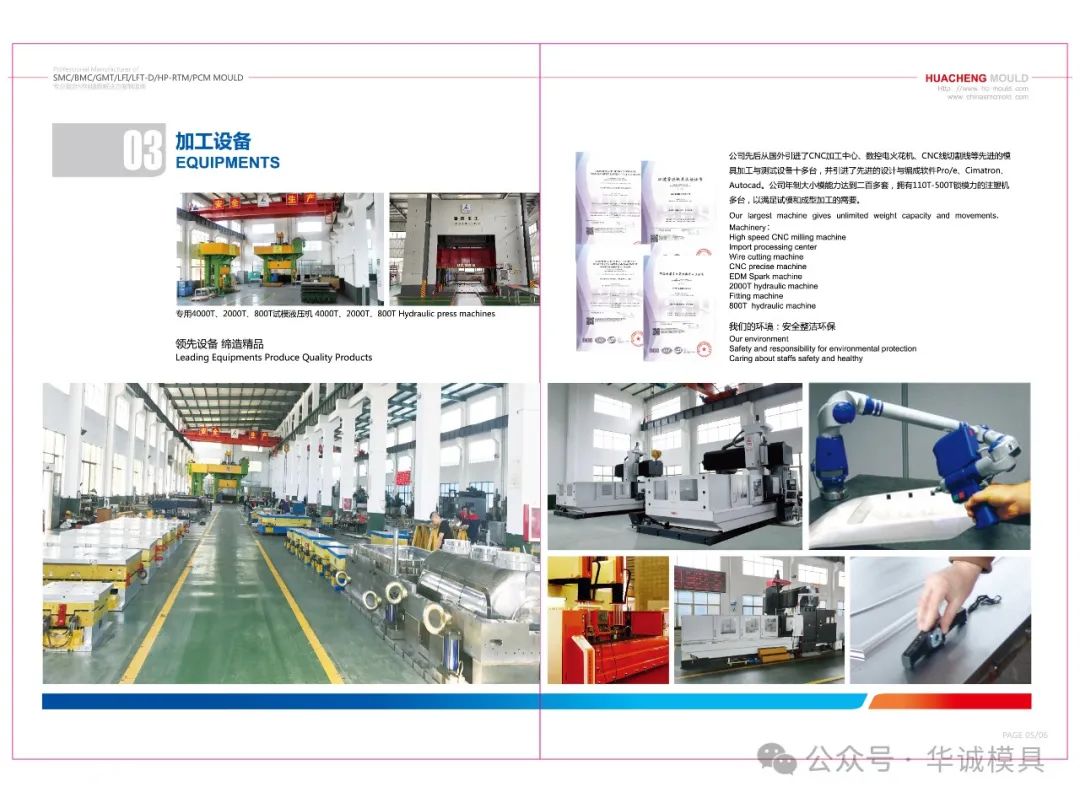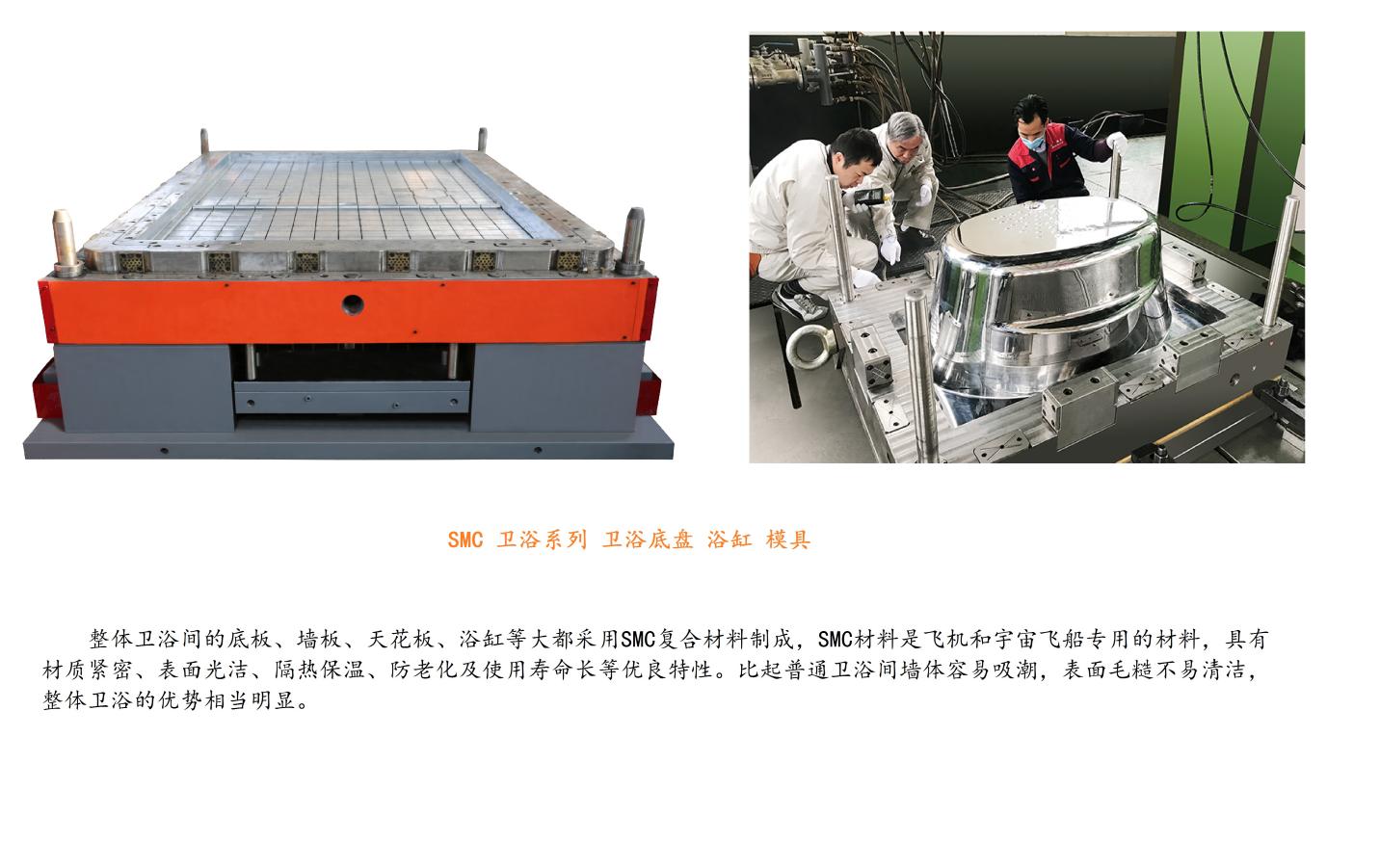Overview of SMC Molding
Release time:
2025-10-16
SMC (Sheet Molding Compound, sheet molding compound) molded parts are products made from SMC composite material using an compression molding process.
I. Definition of SMC Molded Parts
SMC (Sheet Molding Compound, sheet-molded compound) molded parts are products made from SMC composite material through a compression molding process. This material is based on unsaturated polyester resin, glass fibers, and fillers, offering excellent mechanical properties, corrosion resistance, and electrical insulation performance.
II. Process Flow for Manufacturing SMC Composite Materials
The manufacturing process of SMC composite materials includes the following key steps:
Raw Material Preparation: Resin, glass fiber, fillers, and other additives are precisely weighed according to the formulation ratio to ensure stable material performance.
SMC Sheet Preparation: Using specialized equipment, the resin mixture is evenly coated onto the film, followed by the placement of glass fibers, and then covered again with another layer of film, resulting in a continuous sheet-like material.
Maturation process: After the sheet material is prepared, it must be allowed to rest and mature in a恒溫 environment to ensure the material exhibits excellent flowability and molding performance.
Molded Molding: Place the cut SMC sheets into the hot-press mold, then heat and apply pressure to form the desired product.
Post-processing and Inspection: After the molded parts are formed, they need to undergo trimming, sanding, spraying, and dimensional inspection to ensure product quality.

III. Performance Characteristics of SMC Molding Parts
Excellent mechanical properties: SMC composite products boast high strength and excellent rigidity, enabling them to withstand significant impacts and mechanical loads.
Outstanding corrosion resistance: SMC molded parts exhibit strong resistance to acids, alkalis, solvents, and more, making them particularly suitable for automotive exterior components and industrial equipment housings.
Good electrical insulation: SMC composite materials exhibit excellent electrical insulation properties and are widely used in electrical equipment and power systems.
Lightweight Design: SMC molded parts have low density, reducing product weight and helping to improve energy efficiency as well as conserve energy and reduce emissions.
IV. Applications of SMC Molding Parts in the Automotive Industry
SMC molded parts are widely used in the automotive manufacturing industry, playing a crucial role especially in body components and exterior trim pieces.
Body structural components: Such components as the engine hood, trunk lid, fenders, and inner door panels exhibit excellent impact resistance.
Exterior components: Such components as the roof panel, front and rear bumpers, and spoilers can meet both the aesthetic and functional requirements of automobiles.
Battery casing and structural components: SMC composite materials have been widely used in the battery housings and power battery box lids of new-energy vehicles, ensuring both product safety and lightweight design.

V. Advantages of SMC Composite Exterior Components
Excellent surface finish: SMC composite materials can achieve high surface finish and complex curved structures through mold casting, meeting the aesthetic requirements for exterior components.
UV resistance performance: SMC exterior parts boast excellent anti-aging performance and can maintain color stability even after prolonged exposure outdoors.
Lightweight and Eco-Friendly: SMC material has low density, reducing vehicle weight and helping to lower fuel consumption as well as carbon emissions.
VI. Development Trends in SMC Molding Parts
With the growing popularity of lightweight and eco-friendly concepts, market demand for SMC molded parts is steadily increasing. In the future, SMC molded parts will see further development in the following areas:
Material Modification: By employing technologies such as nano-material reinforcement and fiber structure optimization, the mechanical performance and weather resistance of SMC products are further enhanced.
Intelligent Manufacturing: Introducing automated equipment and digital control systems to achieve efficient and precise production of SMC molded parts.
Eco-friendly formula: By using eco-friendly resins, halogen-free flame retardants, and other raw materials, we further reduce pollution emissions during the production process.

Disclaimer: This article is intended solely for the exchange and sharing of expertise in composite materials and market insights, and is not intended for any commercial purposes. If you have any doubts about the copyright of the article or the accuracy of its content, please contact us immediately. We will address your concerns promptly.
Related News

